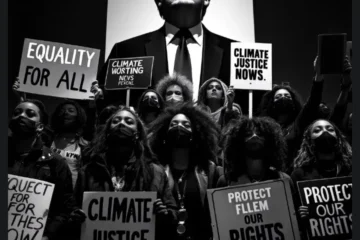Climate Change and Emissions Overview
Climate change is one of humanity’s greatest challenges, driven largely by greenhouse gas emissions from a few major countries. While China, the United States, India, and the European Union lead in total emissions, the issue is complex, involving historical responsibility, per capita emissions, and development status.
– Total Emissions: China (30%), the United States (13%), India (7%), and the European Union (6%).
– Historical Emissions: The United States is the largest historical emitter, followed by the European Union and China.
– Per Capita Emissions: The average American emits nearly twice as much as the average Chinese citizen, highlighting the disproportionate burden of developed nations.
Holding Polluters Accountable
Addressing global pollution requires a comprehensive approach that considers both current emissions and historical responsibility:
1. Implement Stringent Emissions Reduction Targets: Developed nations should lead by setting ambitious and legally binding targets aligned with the Paris Agreement.
2. Introduce Carbon Pricing and Emissions Trading Systems: Carbon taxes and cap-and-trade systems can incentivize reductions, with revenues reinvested in clean energy and climate adaptation.
3. Promote Sustainable Development and Technology Transfer: Developed countries should support developing nations through technology transfer, capacity building, and financial assistance for renewable energy projects.
4. Strengthen International Cooperation and Accountability: Reinforce international frameworks with stronger accountability measures, transparent reporting, and consequences for non-compliance.
5. Encourage Corporate Responsibility and Sustainable Practices: Governments should regulate and incentivize businesses to adopt sustainable practices and reduce their carbon footprint.
6. Promote Lifestyle Changes and Public Awareness: Educate citizens on sustainable living and the collective impact of their actions through public awareness campaigns.
Accountability of Authoritarian Regimes
Authoritarian regimes present unique challenges in global climate efforts due to centralized control and limited public participation. However, these regimes can also implement swift and large-scale changes if properly motivated:
-International Pressure and Diplomacy: Global diplomatic efforts and international pressure can encourage authoritarian regimes to commit to climate goals. Trade agreements and economic incentives can be leveraged to promote compliance.
– Bilateral and Multilateral Agreements: Establishing specific climate agreements with authoritarian regimes can ensure targeted actions and accountability. These agreements can include technology transfer and financial support to encourage sustainable practices.
– Monitoring and Verification: Independent international bodies can monitor emissions and verify compliance, providing transparency and building trust in reported data.
– Engaging in Technological Collaboration: Collaborate on technological advancements in renewable energy and sustainable infrastructure to demonstrate the economic and environmental benefits of green technology.
Conclusion: DvC Consultants’ Role
DvC Consultants, through its innovative framework L.O.A.F. GenAI 24, is at the forefront of addressing climate challenges by focusing on renewable energy solutions. By leveraging Generative AI, DvC Consultants helps organizations:
1. Scenario Planning and Simulation: Anticipate potential disruptions and strategically plan for contingencies.
2. Technology Roadmap Creation: Identify synergies among emerging technologies, ensuring accurate and adaptable roadmaps.
3. Innovation and Ideation Support: Foster continuous innovation to address emerging challenges creatively.
4. Dynamic Strategy Refinement: Adapt strategies based on real-time data, ensuring responsiveness to changing conditions.
5. Risk Mitigation and Compliance: Proactively address compliance issues and mitigate risks associated with disruptive technologies.
6. Customer Experience Enhancement: Understand customer preferences to enhance products and services, staying ahead of evolving expectations.
By integrating these strategies, DvC Consultants empowers organizations to navigate the complexities of climate change, promoting sustainable development and international cooperation for a greener future.
If you would like to know more about how DvC consultants approaches the issues around renewables and sustainable development contact q.anderson@dvcconsultants.com




0 Comments